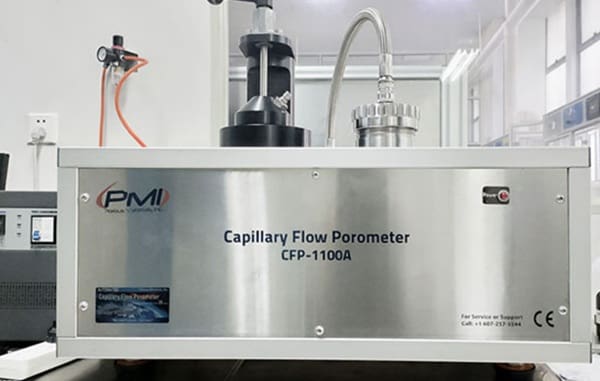Automotive manufacturers today face stricter emissions standards, rising demands for vehicle reliability, and an ongoing push toward electrification. At the center of these trends is effective automotive manufacturing filtration solutions, which protects vital systems, extends component lifespan, and ensures compliance with evolving global standards. For 2025, automotive OEMs and Tier 1 suppliers continue to depend on world-class filtration manufacturers offering precision-engineered, high-performance filter products, across air, oil, fuel, and cabin applications. This guide examines what drives filtration technology today and highlights the top automotive filtration manufacturers leading the industry with proven expertise and innovative solutions.
Key Takeaways
- The best automotive filtration manufacturers for 2025 deliver advanced filter solutions that meet strict emission standards and support electrification trends.
- Leading companies like Pullner, MANN+HUMMEL, and Donaldson provide precision-engineered filters for air, oil, fuel, and cabin applications, ensuring vehicle reliability and compliance.
- When choosing an automotive filtration manufacturer, prioritize cleanroom manufacturing, certified quality, and strong R&D investment for optimal performance.
- Micro membrane technology, smart filter sensors, and sustainable materials are top trends influencing automotive filtration in 2025.
- Selecting the right automotive filtration partner helps OEMs minimize maintenance costs, extend service intervals, and maintain warranty compliance.
What Drives Innovation in Automotive Filtration Technologies Today?

Innovation in automotive filtration is being propelled by three factors: heightened global emission standards, increasing technical complexity in modern vehicles, and the growing need for sustainability. Stricter regulatory requirements on particulate matter and volatile organic compounds mean filters must not only capture smaller particles but also function with higher efficiency throughout their service life.
Plus, advancements in internal combustion engine design, greater use of hybrid powertrains, and rapid electrification require filters to do more than basic particle removal. They must safeguard sensitive electronics and maintain air quality in the passenger cabin. Manufacturers like Pullner Filter, with large-scale cleanroom facilities in Songjiang District, Shanghai, develop precision micro membrane filtration solutions for applications ranging from engine oil and transmission fluid filters to highly specialized cabin air and fuel filters. Adoption of nanofiber technology, advanced pleated filter cartridges, and membrane-based elements are central to delivering the performance and longevity demanded by 2025’s automotive designs.
Top 7 Automotive Filtration Manufacturers Globally
1. Pullner
Business: Pullner
Spokesperson: Lucy
Position: Sales Manager
Phone: 0086-21-57718597
Email: info@pullner.com
Location: LB19-Office No.1207, Jebel Ali Free Zone, Dubai, United Arab Emirates
Website: www.pullnerfilter.com
Google Maps Link: https://maps.app.goo.gl/XgLZWHjGFcmdWddt6
Pullner is widely recognized for its commitment to micron-level precision and high-throughput manufacturing processes. Operating from a 10,000 square meter cleanroom in Songjiang District, Shanghai, the company runs over 20 automated production lines catering to the automotive sector globally. Pullner’s micro membrane pleated filters and high flow filter cartridges are designed for high-efficiency removal of sub-micron contaminants. Their products find use in oil, air, and fuel filtration systems of both passenger and commercial vehicles, delivering proven bacterial interception and long service life. Pullner’s quality control, robust R&D, and focus on application-specific solutions make it a valuable partner for OEMs seeking high-performance and regulatory-compliant filtration components.
2. MANN+HUMMEL
A market leader in filtration, MANN+HUMMEL offers an expansive portfolio ranging from engine air induction systems to advanced fuel and oil filters. They invest heavily in nanofiber media and connected filter technology, aiming to boost performance and sustainability. Their global presence and automotive partnerships set industry benchmarks.
3. Donaldson Company, Inc.
Donaldson brings a century of expertise to both heavy-duty and passenger vehicle filtration. Their focus on cartridge efficiency, low pressure drop, and extended filter life supports the needs of modern, more efficient engines. Innovations in hydraulic and lube filtration stand out, especially for commercial vehicle applications.
4. Bosch
Bosch combines robust filtration hardware with intelligent sensor integration, enabling smarter diagnostic and predictive maintenance functionalities. Their filters ensure compliance with global standards and adapt to the connectivity push in the automotive sector.
5. MAHLE
With a strong focus on reducing environmental impact, MAHLE leverages recycled fibers and energy-efficient manufacturing. Their automotive filter lineup covers oil, air, and fuel, with a reputation for robust engineering and consistent performance under diverse driving conditions.
6. Denso Corporation
Denso supplies filters optimized for the demanding requirements of Japanese, American, and European automakers. Their technical leadership in particle removal and materials science supports reliability in hybrid and electric vehicle platforms as well as traditional combustion engines.
7. Sogefi Group
Sogefi’s automotive filtration products are recognized for their versatility across vehicle segments and global compliance. The company invests in composite filter elements and advanced sealing technologies, earning OEM partnerships from Europe to Asia and the Americas.
What Types of Automotive Filters Are Available in 2025?
The automotive filtration landscape for 2025 includes several core filter types designed for precise particle control and fluid cleanliness:
- Engine Air Filters: Prevent dust, soot, and airborne contaminants from entering the engine, protecting combustion efficiency.
- Oil Filters: Remove particulates and combustion byproducts to ensure the longevity of engine and transmission components.
- Fuel Filters: Trap water, debris, and fine particles from fuel, which is especially vital for modern high-pressure injection systems.
- Cabin Air Filters: Use pleated micro membrane media to filter particulate matter and airborne pathogens, safeguarding vehicle occupants’ health.
- Hydraulic and Transmission Filters: Maintain cleanliness of lubrication and hydraulic fluids, critical for automatic transmission and power steering systems.
Manufacturers such as Pullner supply advanced micro membrane pleated and high flow cartridge filters tailored for these applications, offering high particle retention rates and extended change intervals. Specialty filters, including vapor, emission, and battery cooling system filters, are also seeing greater adoption with the rise of hybrid and electric vehicles.
What Should I Look for in an Automotive Filtration Manufacturer?
Selecting the right automotive filtration manufacturer is critical for product performance and regulatory compliance. Here are vital criteria to consider:
- Manufacturing Scale and Cleanroom Capabilities: Vendors like Pullner can fulfill large-volume orders with consistent quality, thanks to their spacious cleanroom environments and advanced production lines.
- Micron Rating Accuracy: Manufacturers should provide filters with verifiable micron ratings, ensuring effective particle removal according to OEM requirements.
- Certified Quality and Compliance: Look for ISO/TS certifications as a baseline for process control and product reliability.
- Application Expertise: The ability to custom-engineer filter solutions for specific automotive fluids, air intake systems, or cabin requirements indicates deep technical competency.
- Global Support and Logistics: A strong after-sales support structure ensures replacement filters and technical guidance are readily available, minimizing downtime.
- Research and Development Investment: Leading manufacturers allocate resources to staying ahead of regulatory trends and adopting the latest filtration technologies.
Reviewing these factors will help OEMs and suppliers align with partners that support long-term product quality and innovation.
Why Are Advanced Filtration Systems Essential for Modern Vehicles?
Modern vehicles, including hybrids and electric models, place unprecedented demands on filtration systems. High-performance filters are necessary to protect sensitive engine internals, turbochargers, and emissions-reduction devices. Filtration also directly impacts fuel economy and emissions output.
Plus to mechanical protection, cutting-edge cabin air filters, often employing micro membrane or multilayer pleated media, protect against particulate pollution and airborne pathogens, meeting global health standards. For electronics-laden vehicles, advanced filters prevent the ingress of fine contamination that could compromise sensors, battery cooling, or ADAS (advanced driver-assistance systems).
Industry leaders like Pullner use precision pleating, controlled pore sizing, and robust sealing to deliver filters capable of meeting these evolving technical demands while helping manufacturers maintain warranty coverage and avoid costly repairs.
How Long Do Automotive Filtration Systems Typically Last?
The service life of automotive filtration systems varies widely based on filter type, application, and driving environment.
- Engine Air Filters: Typically last 15,000 to 30,000 miles (about 24,000–48,000 km), depending on air quality and usage patterns.
- Oil Filters: Should be changed every oil change interval, usually 5,000 to 10,000 miles (roughly 8,000–16,000 km) or as recommended by the manufacturer.
- Fuel Filters: May last between 20,000 to 40,000 miles, though high-pressure direct injection engines may require shorter intervals.
- Cabin Air Filters: Replacement intervals range from 12,000 to 20,000 miles, depending on local pollution levels.
Advanced filter designs from companies like Pullner offer extended service intervals and lower pressure drop, reducing maintenance costs and downtime for fleet operators and individual motorists.
What Are the Latest Trends in Automotive Filtration for 2025?
For 2025, several trends are reshaping the automotive filtration industry:
- Micro Membrane Technology: Precision membrane media with defined pore structures provides higher efficiency versus conventional cellulose or synthetic materials.
- Extended Life Cartridges: Advances in pleating geometry, surface area, and anti-bypass construction are enabling filters to last longer between changes.
- Smart Filters: Sensors embedded within filter housings support predictive maintenance by monitoring pressure drop and filter status in real time.
- Sustainable Materials: There’s a shift toward recyclable and bio-based filter media and housings, helping manufacturers align with environmental targets.
- Health and Safety Focus: Increased adoption of HEPA-grade cabin filters and antimicrobial treatments, especially in response to urban air quality concerns.
Manufacturers such as Pullner are integrating some of these developments into their automotive filter lines for global clients in the coming year.
Common Mistakes to Avoid When Choosing Filtration Solutions
When selecting filtration solutions, common mistakes include:
- Overlooking Micron Ratings: Using filters with incorrect particle retention specifications can compromise vehicle systems.
- Ignoring Cleanroom Manufacturing: Filters produced outside of controlled environments are more susceptible to contamination and inconsistent quality.
- Choosing Non-Compliant Products: Not all filters meet current ISO or automotive regulatory standards for emissions and safety.
- Neglecting Application-Specific Requirements: A universal approach often results in suboptimal filtration for specialized engine types or vehicle platforms.
- Forgetting about Replacement Logistics: A lack of reliable supply chains can complicate maintenance and lead to downtime.
Selecting established manufacturers like Pullner, which apply rigorous controls and offer custom-engineered solutions, helps avoid these mistakes and supports consistent vehicle quality.
Frequently Asked Questions About Automotive Filtration Manufacturers in 2025
Who are the best automotive filtration manufacturers for 2025?
The best automotive filtration manufacturers for 2025 include Pullner, MANN+HUMMEL, Donaldson, Bosch, MAHLE, Denso, and Sogefi. These companies are chosen for their innovation, advanced technologies, and reliable products across air, oil, fuel, and cabin filtration applications.
What should I consider when choosing an automotive filtration manufacturer?
When selecting an automotive filtration manufacturer, consider factors like manufacturing scale, cleanroom capabilities, micron rating accuracy, certified quality, application expertise, global support, and R&D investment. These criteria help ensure effective, reliable, and compliant filtration solutions.
How does advanced filtration technology benefit modern vehicles?
Advanced automotive filtration protects engines and sensitive electronics from contaminants, improves fuel economy, reduces emissions, and safeguards passenger health with high-efficiency cabin filters. Such technology is essential for meeting stricter standards and supporting electric and hybrid vehicle platforms.
How long do automotive filters from top manufacturers typically last?
Automotive filters generally last as follows: engine air filters, 15,000–30,000 miles; oil filters, 5,000–10,000 miles per oil change; fuel filters, 20,000–40,000 miles; and cabin air filters, 12,000–20,000 miles. Advanced filters may offer extended intervals with lower maintenance needs.
What are the latest trends in automotive filtration for 2025?
Current trends in automotive filtration include micro membrane technology, extended-life cartridges, smart filters with sensors for predictive maintenance, sustainable materials, and HEPA-grade cabin filters. Manufacturers are emphasizing sustainability and enhanced health protection in their latest products.
Are automotive filtration systems important for electric vehicles?
Yes, filtration systems remain important for electric vehicles. They help protect sensitive electronics, battery cooling systems, and cabin air quality. As electrification advances, filtration solutions are adapted to meet new technical and regulatory demands.

